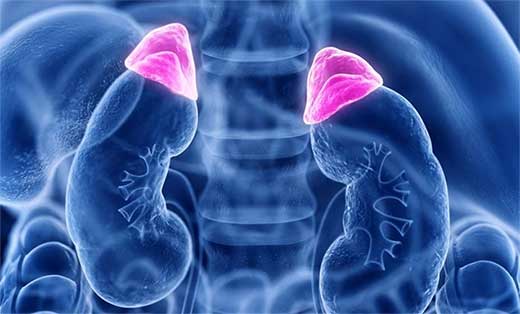ADRENAL FATIGUE

Adrenal Fatigue is a stress-related condition that occurs when your adrenal glands, hypothalamus, and pituitary gland are functioning below their optimal level. It is typically the result of chronic physical or emotional stress.
Lab tests don’t always give a perfect picture of what’s going on inside your body.It’s easy to be overlooked or dismissed. This is why it’s so important to educate yourself on what to look for and how to eliminate stressors that aggravate your adrenals.
The adrenals produce a wide range of hormones such as estrogen, adrenaline and cortisol. One of the primary activities of cortisol is to increase available glucose to the nervous system by breaking down protein and fat to glucose in the liver.
One of the most important functions of the adrenal gland is the fight-or-flight response. When a person is stressed or frightened, the adrenal gland releases a flood of hormones, such as adrenaline and cortisol.
These hormones increase the heart rate, elevate blood pressure, boost energy supplies, sharpen concentration and slow down other body processes so the body can run from or fight a threat : Symptoms.
-
✓ Mild depression or anxiety.
✓ Multiple food and/or inhalant allergies.
✓ Lethargy.
✓ Weight gain.
✓ Increased effort to perform daily tasks.
✓ Decreased ability to handle stress.
✓ Dry and thin skin.
✓ Low blood sugar.
✓ Low body temperature.
✓ Palpitations.
✓ Unexplained hair loss.
✓ Alternating diarrhea or constipation.
You might notice that a lot of these symptoms are pretty general.
This is one of the challenges with adrenal fatigue imbalanced hormones affect your entire body so much that it’s hard to pin it down to your adrenals.
